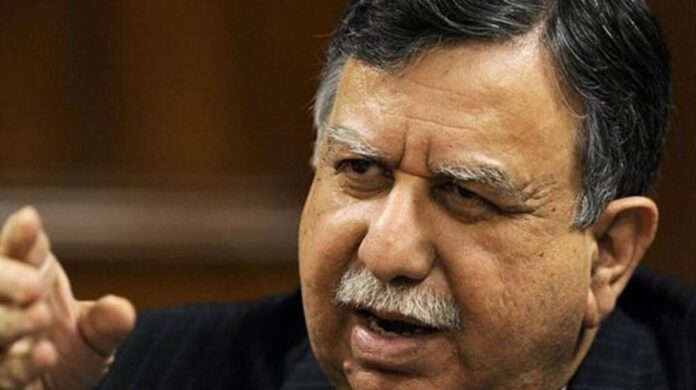ABU DHABI: Finance Minister Shaukat Tarin said the country will exit grey list of Financial Action Task Force (FATF) this year as it has already achieved almost all targets set by the task force. The minister, while talking to Khaleej Times on Saturday, also expressed serious doubts over the independence of the FATF after the global financial crime watchdog announced to retain Pakistan on a list of jurisdictions subject to increased monitoring, known as its “grey list”.
“The FATF decision is politically motivated and it was taken under the influence of some powerful nations to pressurise Pakistan over its strategic policy decisions,” said Tarin, who is in Dubai on a tour.
“We have completed 26 conditions out of 27 of the action plan […],” he said, insisting the agency has no merit to retain Islamabad’s status as it has made significant progress to meet its “tough conditions”.
On Friday, the FATF announced that it is retaining Pakistan on the grey list while noting that “significant progress” has been made in completing the required action items for removal from the list.
In a statement, the FATF said that Pakistan has completed 26 of the 27 action items in its 2018 action plan. It encourages Pakistan to continue to make progress to address the one remaining item as soon as possible. It further added since June 2021, Pakistan has taken swift steps towards improving its AML/CFT regime and completed six of the seven action items ahead of any relevant deadlines expiring.
“Pakistan should continue to work to address the one remaining item in its 2021 action plan by demonstrating a positive and sustained trend of pursuing complex money laundering investigations and prosecutions,” the statement said.
This decision was made after the conclusion of the four-day plenary meeting from March 1-4.
In 2018, FATF returned Pakistan to the grey list of nations with a high risk of money laundering and terrorism financing but which have formally committed to working with the task force to make changes.
In addition to further FATF scrutiny, countries on that list risk reputational damage, ratings adjustments, trouble obtaining global finance and higher transaction costs, experts say.
Currently, only Iran and North Korea are blacklisted, a designation that severely restricts a nation’s international borrowing capabilities. Pakistan is trying to avoid that designation but also get off the grey list.
The country’s leadership and independent observers have come to believe Pakistan’s retention in the grey list is a political decision.
In June last year, Foreign Minister Shah Mahmood Qureshi said it needed to be looked into whether FATF was “being used for political purposes”, adding “some powers desire to keep the sword of FATF hanging over Pakistan.”
According to a Foreign Office spokesperson, who spoke at his weekly media briefing on February 25, Pakistan has “completed all technical requirements of the FATF, and it is only because of certain members of the group that the watchdog has refused to remove it from the grey list”.
In October, an Islamabad-based independent think tank, Tabadlab, estimated it has cost the economy $38 billion since Islamabad was put on the grey list.
The latest meeting took place in a hybrid format with a significant number of participants attending in person due to the gradual easing of Covid-19 restrictions in several countries.
In a statement, finance ministry said Pakistan presented its case in an effective manner and also reaffirmed its political commitment to continue with the efforts to complete the action plans.
“The FATF reviewed Pakistan’s progress on both action plans in its plenary meeting. The FATF members, while participating in the discussion on Pakistan’s progress, recognised Pakistan’s continuing commitment towards sustainable, robust AML/CFT frameworks,” the statement said.
“The country is making endeavours to complete the last two remaining items of both the action plans, as early as possible,” the statement said.
According to the Khaleej Times report,Samiullah Tariq, head of research at Pakistan Kuwait Investment Company, said Pakistan is already in the grey list since 2018, so there is no major impact expected on business and markets in near term.
“In my view Pakistan’s performance has been impressive while complying with FATF parameters and it is also acknowledged by the FATF. Pakistan should have been excluded from the grey list amid considering its significant progress on improving its financial system and check terror financing,” Tariq said.





Really NYC information sir